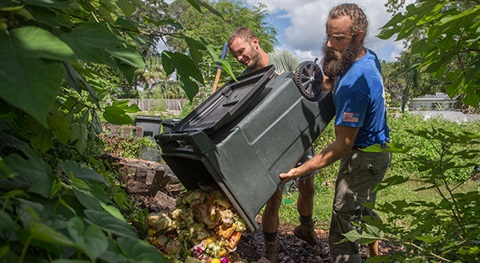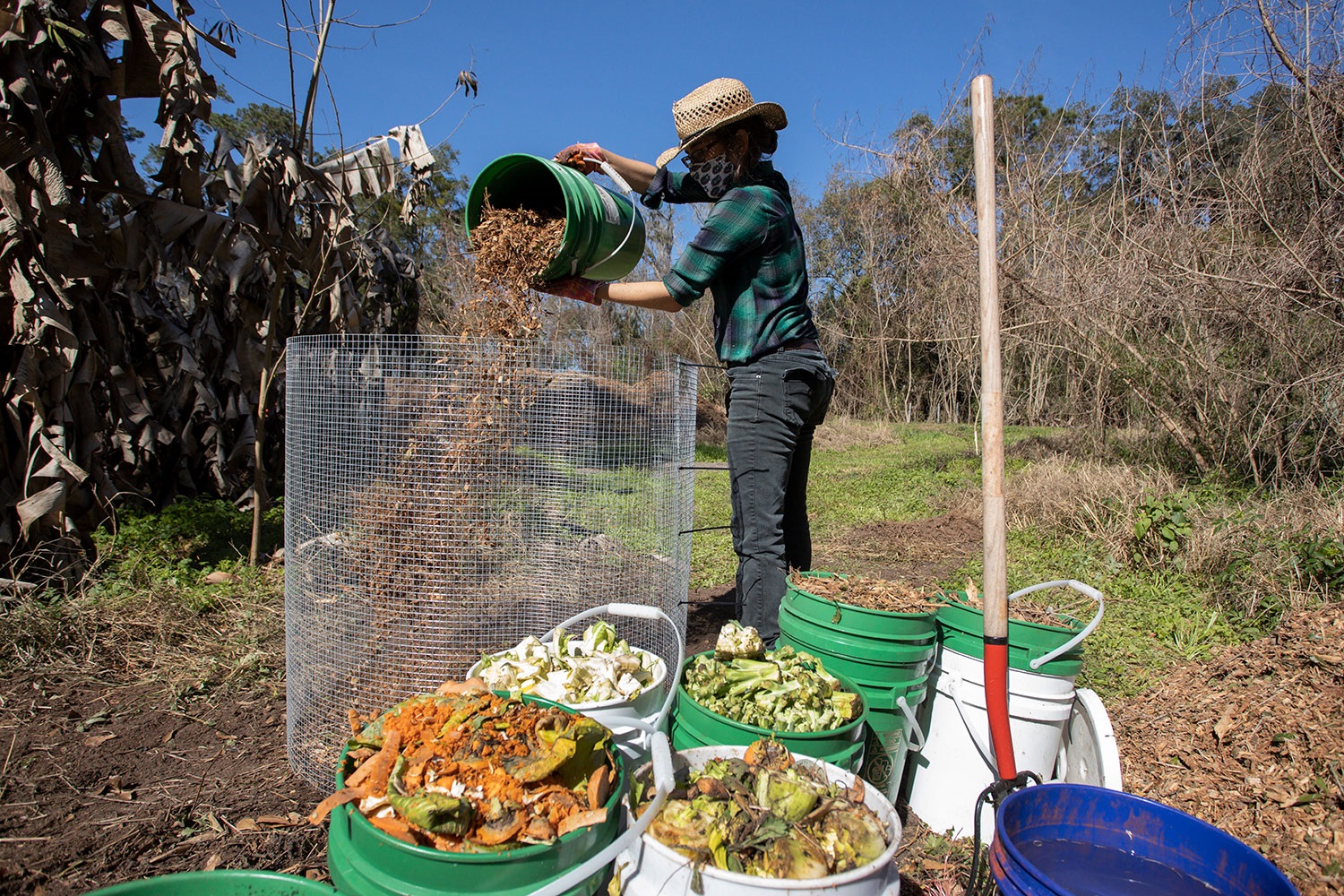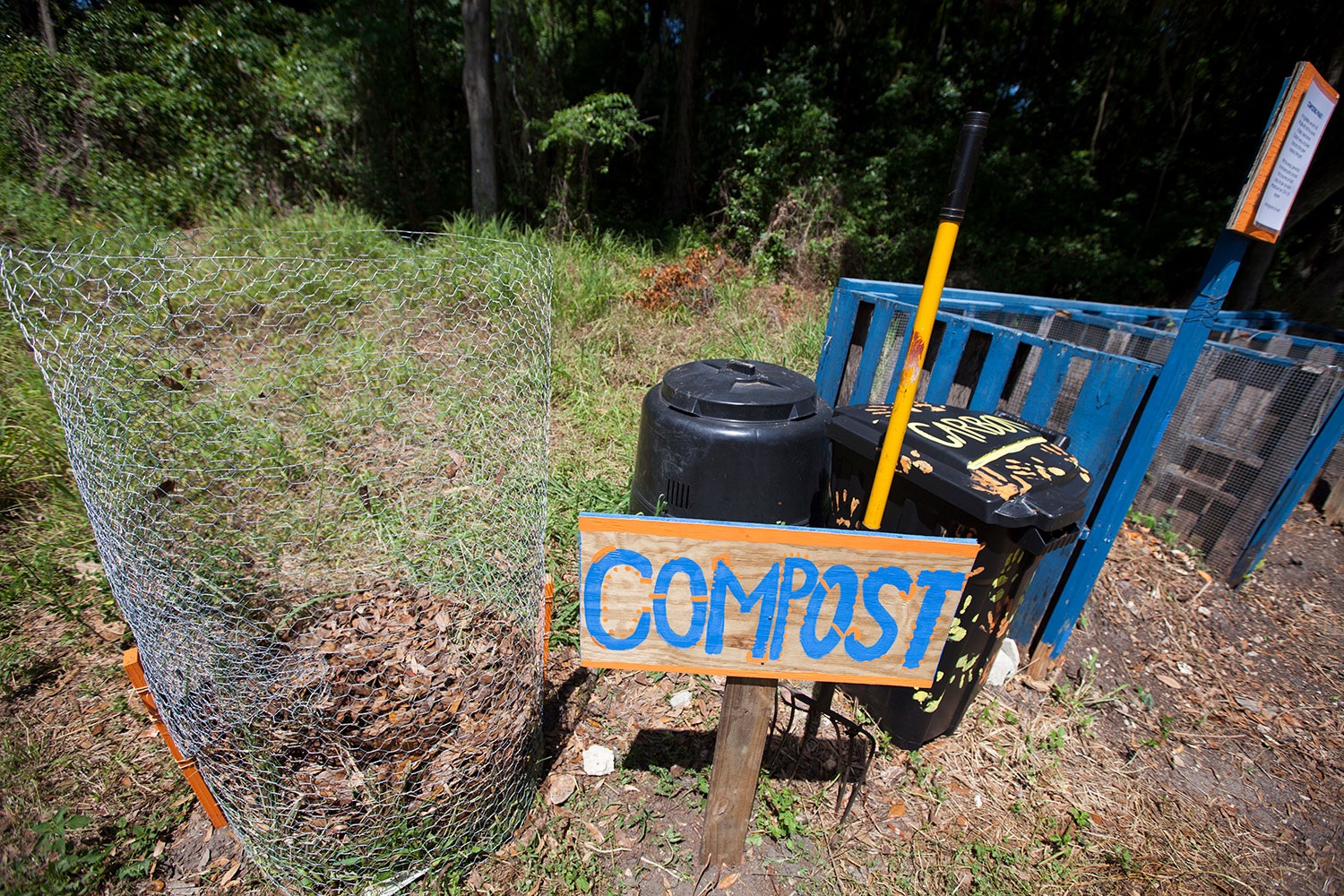Composting Program

Doral Partners with UF to Promote Sustainable Living
The City of Doral is excited to announce a new partnership with the University of Florida (UF) to launch a Composting Training Program. This initiative aligns with the City’s commitment to environmental sustainability and reducing waste. In 2013, UF began piloting a composting program through a partnership with Waste Corporation of America (WCA) and Watson’s C&D. This expanded in 2014 to include the collection of pre- and post-consumer materials from Fresh Food Company and Gator Corner Dining Center. In 2017, UF launched a pilot program to collect paper towel waste for compost and this program has continued to expand into several building campus-wide. Learn more about the Watson’s C&D composting facility on their website.

Through this partnership, UF will provide expert-led composting workshops and seminars to Doral residents. These educational sessions will cover topics such as:
- The basics of composting
- How to set up a home compost bin
- What materials can be composted
- Benefits of composting
By participating in these workshops, residents can learn how to reduce their environmental impact, save money, and create nutrient-rich soil for their gardens.
The City of Doral encourages all residents to take advantage of this opportunity to become more environmentally conscious. Stay tuned for more information on upcoming workshops and registration details. Together, let's build a greener Doral!
Learn about Home Composting
Home composting of yard waste and select kitchen waste takes materials that could wind up in a landfill and converts it into compost, a useful product for our South Florida gardens. It also avoids the energy and carbon emissions associated with transportation of this material to a centralized final disposal site. Anything that was a plant can be composted.

Items than can be composted
Materials that come from plants contain nitrogen and carbon, which over time can decompose. That material can then be used as a slow-release fertilizer, a soil amendment, in your potting soil, or in your raised-bed vegetable garden.
In addition, home composting helps the environment as it is waste that is not transported to a landfill.
The following materials known as "greens" are high in nitrogen:
- Grass clippings
- Green leaves
- Fruit and vegetable kitchen scraps
- Coffee grounds
- Tea bags
The following materials known as "browns" are high in carbon:
- Brown leaves
- Paper coffee filters
- Stale cereals and rice
- Crushed egg shells
- Newspaper
- Chipped tree branches
The process
Composting materials should be chipped or shred so individual items are no more than two to three inches long. Materials should then be placed in a composting bin.
After building the compost pile, the compost will heat up due to biological activity and will settle as the materials decompose. To speed up the process, "turn" the compost about once a week.
It’s ready to use when it has a uniform look, dark color, small particle size and an earthy odor. Most of the materials you put in will no longer be recognizable. It is now ready for use.
When done correctly, compost is not smelly, and does not attract unwanted wildlife and pests.
Miami-Dade County Workshops
Learn how to make rich organic soil from leaves, branches, paper plates and other recyclable materials through composting. Join University of Florida Master Gardeners for a step-by-step workshop on making your own soil.
Workshop participants will receive a voucher (one per household, Miami-Dade residents only) for a free compost bin (limited quantities, while supplies last). The pickup location will be provided after the program.
Be sure to bookmark or favorite this page and check again regularly as new workshop dates, both in-person and online, may be added.
Online workshops begin at 2 p.m., unless otherwise noted below. They will be conducted virtually via Zoom. Space is limited for online events. Registration is required. To register, click the link with the date you are interested in. Zoom link will be emailed to registrants within 24 hours of the event start time.
Upcoming 2024 online workshop dates:
December 28, 2024 - Online Event: Composting at Home 101
Resources
Miami-Dade Cooperative Extension (scroll down to Composting section)
U.S. Environmental Protection Agency
Sarasota County Extension Service
Composting-Training-Program-UF-and-City-of-Doral.pptx(PPTX, 5MB)